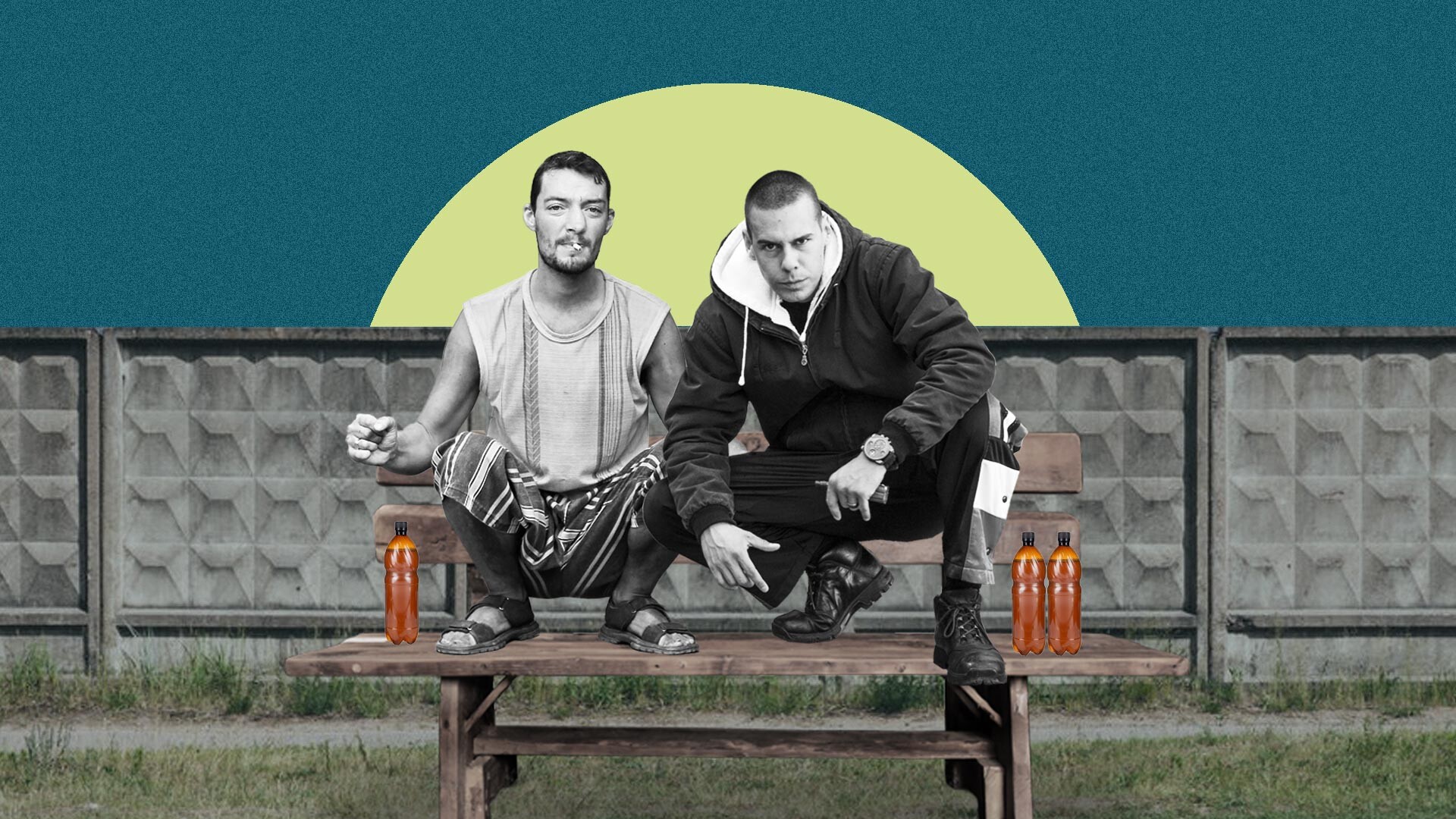
Brother is, of course, much more than friend, so this is how Russian guys call each other if they’re really close and have been through some ordeals together. A diminutive братишка (‘brat-ishka’) is a more friendly variant and ‘bratan’ carries an air of respect and dignity. Also, Russians from the Caucasian region, who practice Islam, consider all fellow Muslim believers “brothers” and even slightly abuse this word, especially with strangers.
However, it’s not uncommon to be called ‘brat’ by a complete stranger on the street in Russia – but in most cases, the person may simply want something from you, like a cigarette or some spare change.
The obvious word for a friend has also many derivatives in Russian – дружбан (‘droozhban’), дружище (‘droozhishche’), друган (‘droogan’). All of them just emphasize the meaning of ‘friend’. After брат, друг stands above all other words in terms of seriousness of friendship.
Again, if a stranger wants something from you on the street, they might address you as ‘droog’, trying to imply they mean no harm.
This word came from criminal circles in the early 20th century. In Yiddish, ‘korev’ means ‘relative’. Since the Russian criminal world had many Jewish people speaking Yiddish, their words migrated into Russian. Currently, the word ‘koresh’ just means “a close friend” and doesn’t really carry any criminal meaning.
A clean analogue of ‘homeboy’, земляк (“the one from the same land”) is used to mean that somebody is from the same place as you are, where земля means ‘land’ in Russian. In a vast country, people who go to work and live in Moscow or St. Petersburg from other cities and towns of Russia often end up making friends with people who come from the same regions, often referring to them as ‘zemlyak’, or with a touching diminutive – ‘zemelya’.
Used in reference to boys only, ‘starik’ means someone you’ve known for a long time. It is also used ironically, when an older person addresses the younger one, who obviously can’t be an “old man”. However, referring to a girl or a woman as ‘starukha’ (‘old hag’) is an insult, even between girls.

Just like ‘koresh’, ‘kent’ probably came from Yiddish, where it means “the one who knows [you]”. This word is also borrowed from the language of criminals and is still used there. Normally, if a Russian guy calls someone ‘kent’, he implies that the friendship is really close and that he and his ‘kent’ overcame some tough times together.
Derived from the slang term кирять (kiryat, ‘to drink’), this word means a drink lover and also a buddy who you’re drinking with.
You wouldn’t want to call your friend a ‘priyatel’, because it really means a person you have just an easy relationship with, but it can’t be called friendship – yet. ‘Priyatels’ can become friends, but they don’t always do.

Derived from the word ‘tovar’ (‘product’), ‘tovarisch’ was initially used in Russia to mean a business partner. But, in the Soviet times, it became a widespread address form for the people in the USSR – and not only men; a woman could also be called a ‘tovarisch’. Currently, this word is used less often and it can be compared to ‘priyatel’ in terms of usage. We also have a separate article for this word.
This word is the “least friendly” of them all and it’s used to mean a person you know of, but aren’t friends or pals with; you just happen to have their acquaintance and don’t necessarily have good relations with the person.
If using any of Russia Beyond's content, partly or in full, always provide an active hyperlink to the original material.
Subscribe
to our newsletter!
Get the week's best stories straight to your inbox